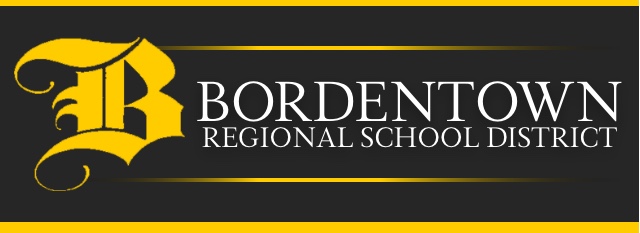The Bordentown Regional School District Board of Education has adopted a budget for the 2019-20 school year.
Superintendent of Schools Edward Forsthoffer and Business Administrator Eloi Richardson presented the budget during a meeting in the Bordentown Regional High School library on May 1. The two administrators explained the reasoning and formalities for the budget, which was then adopted by the board.
The budget for the 2019-20 school year totals $47.35 million, which includes a general fund of $43.3 million, special revenues of $835,823 and debt service of $3.2 million.
The proposed total local tax levy to support the budget is $33.2 million, to be paid by the residential and commercial property owners of the municipalities that comprise the regional district – Bordentown Township, Bordentown City and Fieldsboro.
Forsthoffer said the budget would allow new employees to be hired, continue the district’s educational services and fund new initiatives like a new social studies program and capital improvements.
Administrators said the key component allowing for the addition of personnel and the preservation of services is an increase in state aid for 2019-20. Administrators said state aid will increase by $693,177 (3.7 percent), bringing the district’s total state aid to about $9.3 million.
Forsthoffer also said administrators are planning to purchase additional technology, including interactive projectors and whiteboards. For transportation, he said the district is looking to purchase a new school bus and a new van to replace vehicles that are aging out of the current fleet.
In regard to capital improvements, district officials said they are planning to upgrade items such as house lighting at the performing arts center at the high school, roof repairs at the Peter Muschal Elementary School and the addition of an awning at the entrance of the Bordentown Regional Middle School.
Administrators said they are planning to add eight employees, including a half-time high school guidance counselor who will also be a half-time student assistant counselor at the middle school; a middle school band teacher; a special education teacher; a technology support person; two elementary school Spanish teachers at the K-5 level; and two program supervisors – one in language arts and one in mathematics.
Taxpayers in each of the three municipalities that comprise the regional district will be impacted differently by the budget.
In 2018-19, the school tax rate in Bordentown City was $1.7896 per $100 of assessed valuation. The average home was assessed at $201,923 and the owner of that home paid $3,613 in school taxes.
For 2019-20, the school tax rate in Bordentown City is projected to be $1.8433 per $100 of assessed valuation with an average home assessment of $202,487. The school tax bill will total $3,732 – an increase of $119 for homeowners with that assessment.
In 2018-19, the school tax rate in Bordentown Township was $1.9341 per $100 of assessed valuation with an average home assessment of $241,759 and the owner of that home paid $4,676 in school taxes.
For 2019-20, the school tax rate in Bordentown Township is projected to be $1.9525 per $100 in assessed valuation with an average home assessment of $241,875. The school tax bill will total $4,723 – an increase of $47 for homeowners with that assessment.
In 2018-19, the school tax rate in Fieldsboro was $1.7031 per $100 of assessed valuation. The average home was assessed at $190,665 and the owner of that home paid $3,274 in school taxes.
For 2019-20, the school tax rate in Fieldsboro is projected to be $1.7077 per $100 in assessed valuation with an average home assessment of $196,575. The school tax bill will total $3,357 – an increase of $110 for homeowners with that assessment.
School taxes are one item on a property owner’s total tax bill, which also includes municipal taxes and county taxes.
The amount of tax an individual pays is determined by the assessed value of his home and/or property and the tax rate that is set by each taxing entity.
At the conclusion of the budget presentation, Forsthoffer said although state funding for the district is slowly increasing, it has helped benefit the schools. He said he believes the 2019-20 budget is reasonable given the district’s current financial status.
“The good news is we are now receiving increases in state aid to make up for the years of being underfunded,” he said. “Although we are still being funded under the recommended level, the trend is going in the correct direction for our district.
“Based on the input of (the board of education, administration and the public), we have produced a budget that is fair, that is balanced, so that we may effectively operate next year,” he said.

